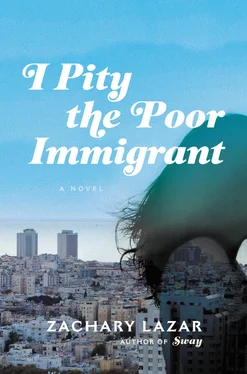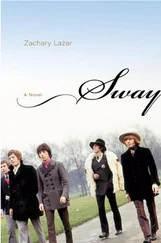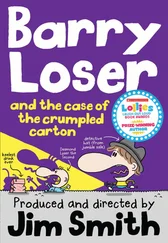On that second night, I went out in the dark and walked up Frishman Street to Ben Yehuda, Dizengoff, then over to Allenby. Beyond the glass towers along the beach, the buildings seemed to erode beneath graffiti and Xeroxed ads for nightclubs. It took me a long time, but I walked all the way to Lilienblum, a street in a quiet neighborhood with a few discreet bars, some without signs, the kind of places journalists and writers tend to gather — chintz couches, dim lighting, music just abrasive enough to conjure youth. I asked some customers if they knew anything about David Bellen. I asked the bartenders. I showed them Bellen’s picture — the glasses, the stark bald head — and none of them remembered seeing him anywhere but in the newspapers or on TV. On my way back home, a drunk came out of nowhere and started shouting that I was a whore.
You had to like modern Tel Aviv better than Jerusalem with its ancient strife. Either that, or you had to stop thinking about it.
15) VOSS
We met for lunch the next day. He said there were reasons he hadn’t called but he didn’t want to get into them now. He apologized for disappearing — it was inconsiderate, but perhaps I understood, perhaps in the past I’d been inconsiderate to someone myself. I assumed he meant he’d been with another woman. We ate at a café up the beach from the Dan Hotel, rows of tables and wicker chairs, oil lamps in glass boxes. He wore black jeans and an olive-colored leather jacket over a black T-shirt. He was watching me eat, sitting back a little from the table, smoking. He said he’d had to think a long time about whether he should show me the part of the city he was going to show me. He said that the reason he was going to show me was his belief in my respect for David Bellen.
“I respect him, but I don’t like that word,” I said. “It has a pious ring.”
“It’s actually very simple.”
“Respect for the dead.”
“Simpler than that.”
“I don’t know how you get any simpler than that.”
He looked out at the beach. When the bill came, he put his fingers down over the leather folder and said something to the waiter in Hebrew.
16) GANGSTERS
Like a Legend from My Youth
How the mighty have fallen
in the midst of battle!
Call the old steakhouse on
Etzel Street
and tell them
Aslan the King is dead
Tell the widow
and the Alperon gang
the Three Clans
and the Mayor of Tel Aviv
Tell the orphan and the starlet that
Aslan the King is dead
In what distant deeps or skies
burnt the fire of thine eyes?
Ze’ev Rosenstein,
the Wolf with Seven Lives,
you hit the King
who nine bullets before had survived
Aslan the King is dead
17) ORIGINS
We drove to Bellen’s childhood neighborhood, a working-class district called Hatikvah on the other side of Tel Aviv’s main highway where the streets get narrower and closer together. Low rectangular buildings of gray concrete led into empty lanes. Shop fronts, faded awnings, dumpsters, trees like thin misplaced weeds. In Hatikvah, Voss told me, Bellen’s father had sold produce in the market stalls, a Galician refugee in a district largely populated by dark-skinned Jews from Arab countries, Mizrahim. More to the point, Voss explained, Hatikvah was a center of organized crime, as it still is. I was relieved to learn that this was what Voss had been afraid to show me, why he had disappeared. Israel has already had its share of bad press. He was trusting me not to senselessly add to the noise.
We parked off Etzel Street, the setting of Bellen’s poem about the famous gangster Yehezkel Aslan, the one “who nine bullets before had survived.” Two old men sat outside at a plastic table with coffee and cigarettes as if they’d been sitting there all morning and would sit there tomorrow and every day thereafter. One was toothless and wore a stocking cap. The other was robust, potbellied, his shirt unbuttoned to reveal a white undershirt beneath. They looked like figures in an Ivan Schwebel painting, except they had dark skin — I thought they were Arabs but Voss made it clear to me that they were Jews. He did this by translating some graffiti on a phone booth nearby. There will be peace when the last Arab is dead.
We met a man whose name I can’t give. What I can say is that he was in his midsixties, a white-haired man with thick eyebrows and dark skin, an Iraqi Jew, like the famous Aslan. It struck me that, like Bellen’s son, Eliav, this man had an affection for the hand-shaped amulets called hamsas . They were all over the walls of his office, along with portraits of a Sephardic holy man with a narrow wizened face, a gray beard, a scarf covering his head like a shawl — a man whose beatific strangeness reminded me of a Sufi mystic or a fundamentalist mullah. Voss introduced me as the American journalist writing about David Bellen. The man nodded his understanding. We sat down and a boy in a green Adidas tracksuit served us pastries and black coffee. He stood in the corner of the room and watched me mostly, his hands balled in front of his waist, a gold rope chain around his neck. Moroccan-sounding music played from a radio. The room was hot and flies alighted on the sticky plastic tablecloth. The coffee came in tiny gilt-edged cups rich with Arabic-looking ornament. I understood that whatever I thought of as a “Jew” was now so broad a concept as to be meaningless.
“He and Bellen were boyhood friends,” Voss explained to me. “Friends until they were about nine or ten, then there was a drifting apart.”
The man told an odd story about a birthday party Bellen’s parents had given for their son when the man and Bellen were growing up. It wouldn’t have been much, the man said — maybe a small cake, maybe just some watermelon. It wouldn’t have been much, but for the man’s parents it was “like they were inviting me to a brothel.” I couldn’t quite understand what this meant — it had something to do with his parents’ indigence, their pride in the face of what they perceived as the Bellens’ softness. The man left school to sell laundry soap in the market. He made his money now as a loan shark.
“When was the last time you saw Bellen?” I asked.
Voss translated and the man shook his head briefly and didn’t answer. I asked him if he had read Bellen’s poetry and instead of answering the man spat on the floor. It was not easy as a woman or an American to press him further and I began to resent Voss a little, for though he was helping me he was also inevitably policing the conversation.
“I felt very bad about what happened to him,” the man said. “He was like a child — even as a sixty-five-year-old man he was like a child. To go as far away from this place as he did and then to write that book. Writing nonsense about this world he knew nothing about. Only a child would do something like that.”
18) THE FIRST LEBANON WAR
After this meeting, I asked Voss a question I shouldn’t have asked, a question that emerged spontaneously in a larger conversation about the history of violence that seemed to surround us everywhere. We were at a restaurant on Etzel Street, the famous steakhouse that had been owned by Yehezkel Aslan, the “King” in Bellen’s poems. On the walls were signed photographs of Israeli actors and politicians, athletes, journalists. Yehezkel Aslan had run an international gambling empire worth millions of dollars, financed by loan sharking and heroin. In 1993, he was murdered outside the Pisces restaurant after surviving nine bullets to the face some years earlier. A thousand people came to his funeral. He was a folk hero, a supporter of youth athletic teams and the builder of a drug rehab center for the very addicts he had helped supply. A figure out of mythology, like King David or Tony Montana, only real.
Читать дальше












